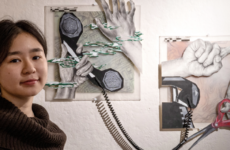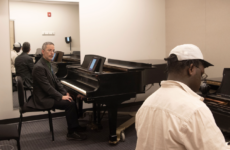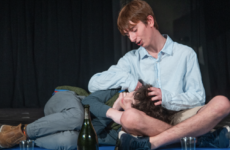For a week over spring break, a group of fifteen Choate students traveled to southern Spain to explore the Arabic influences present in the Al-Andalus region. The trip, which was organized and chaperoned by Ms. Eera Sharma (Spanish) and Mr. Georges Chahwan (Arabic), included stops at cities such as Madrid, Córdoba, Granada, Malaga, and Sevilla. Students had the opportunity to participate in guided excursions with native tour guides, visit historical landmarks, and explore the cities on their own.
Mr. Chahwan initially planned the trip as an opportunity for his Arabic students to immerse themselves abroad, and in an attempt to expand the study of Islamic cultures beyond the Middle East. Choate holds programs in Jordan and Oman, but due to Ramadan, the Muslim holy month of prayer and fasting, falling in the summer this year, the trip was cancelled, and Ms. Sharma joined Mr. Chahwan to expose Spanish students to the culture as well.
Saleha Farooqui ’18, one of the students who went on the trip, commented, “I was really interested in the Arabic aspect of the trip. I never thought that a place like southern Spain would have those influences.” Some of the major sights that the group visited included the Mezquita Cathedral – a mosque converted into a church in Córdoba – and the Palacio De La Madraza – the Muslim school of Koranic law in Granada. Keziah Clarke ’16, an Arabic student on the trip, added, “It was really cool to explore Spain from the perspective of searching for Arabic influences because the more you looked, the more you found.”
“I joined the exploration for exploration’s sake,” says Kristen Altman ’18, “As diverse as the Choate community is, it doesn’t substitute for real-world experiences and exploring different cultures. It’s something that we as humans are drawn to, being able to see how the rest of the world lives.” Ms. Sharma remarked, “The world is flat nowadays, as they say, and it really is essential to travel and explore different cultures. You learn so much about yourself, your own culture, your own language, and how it is so different from the way other people live. It really is a formative experience for so many students.”




